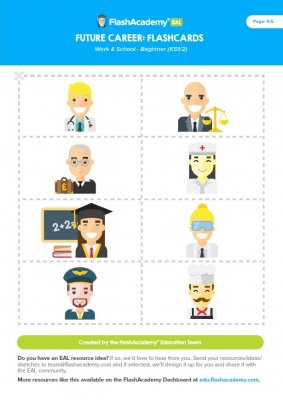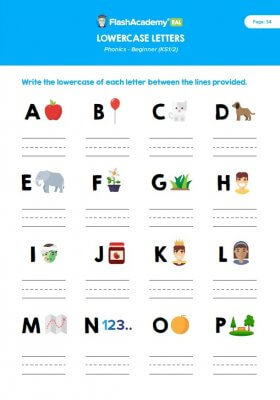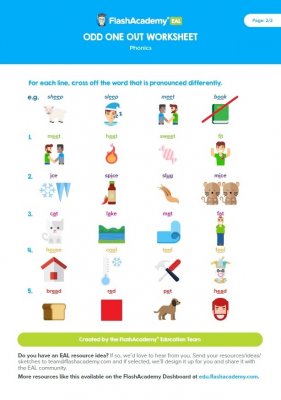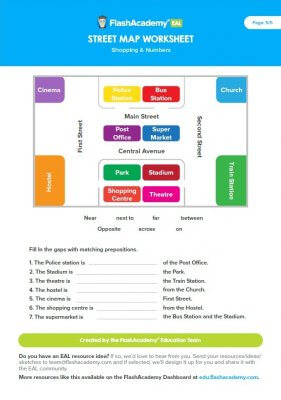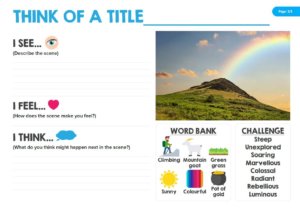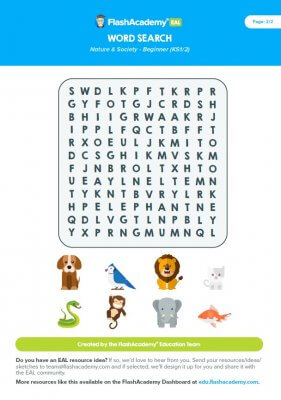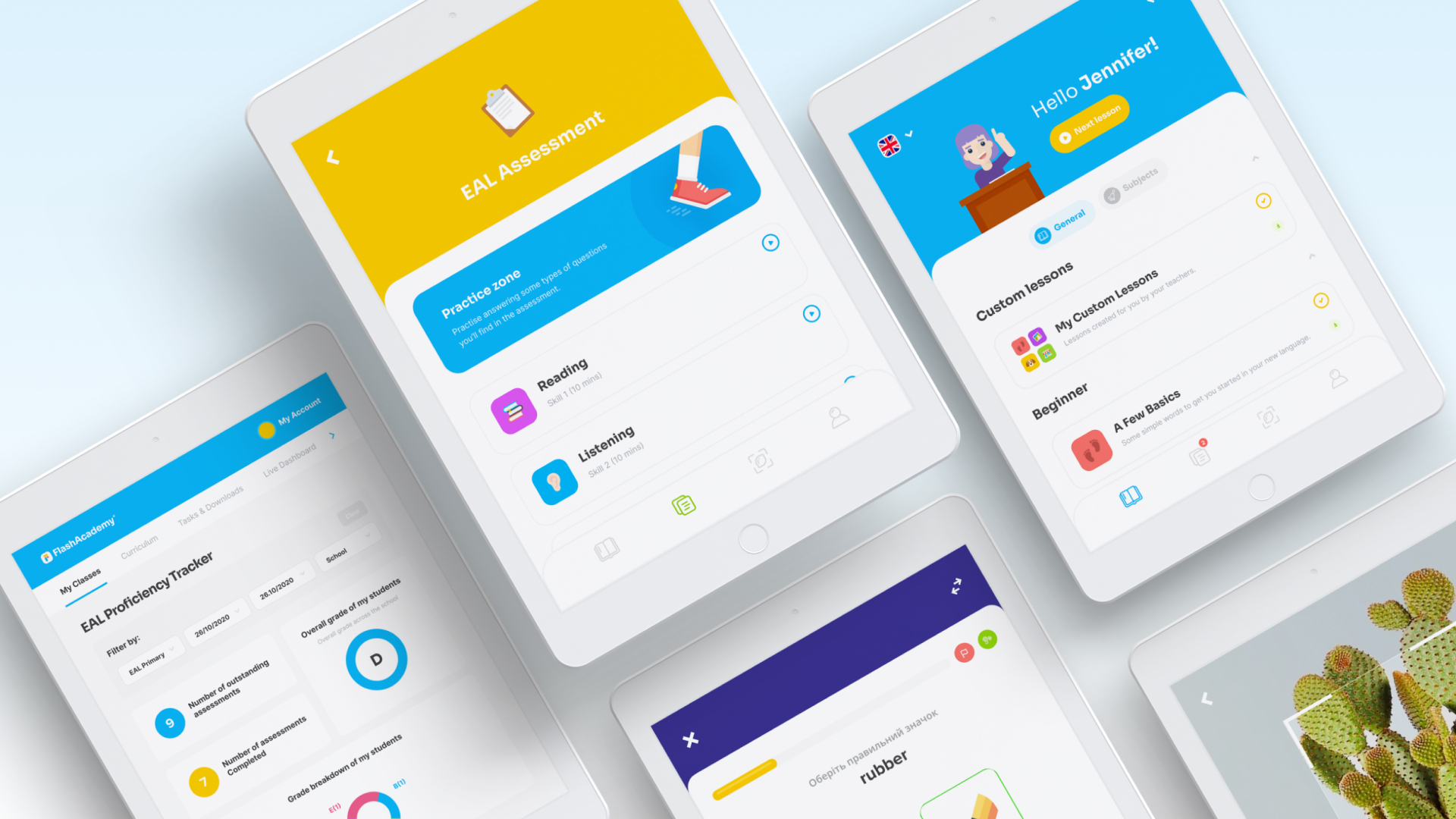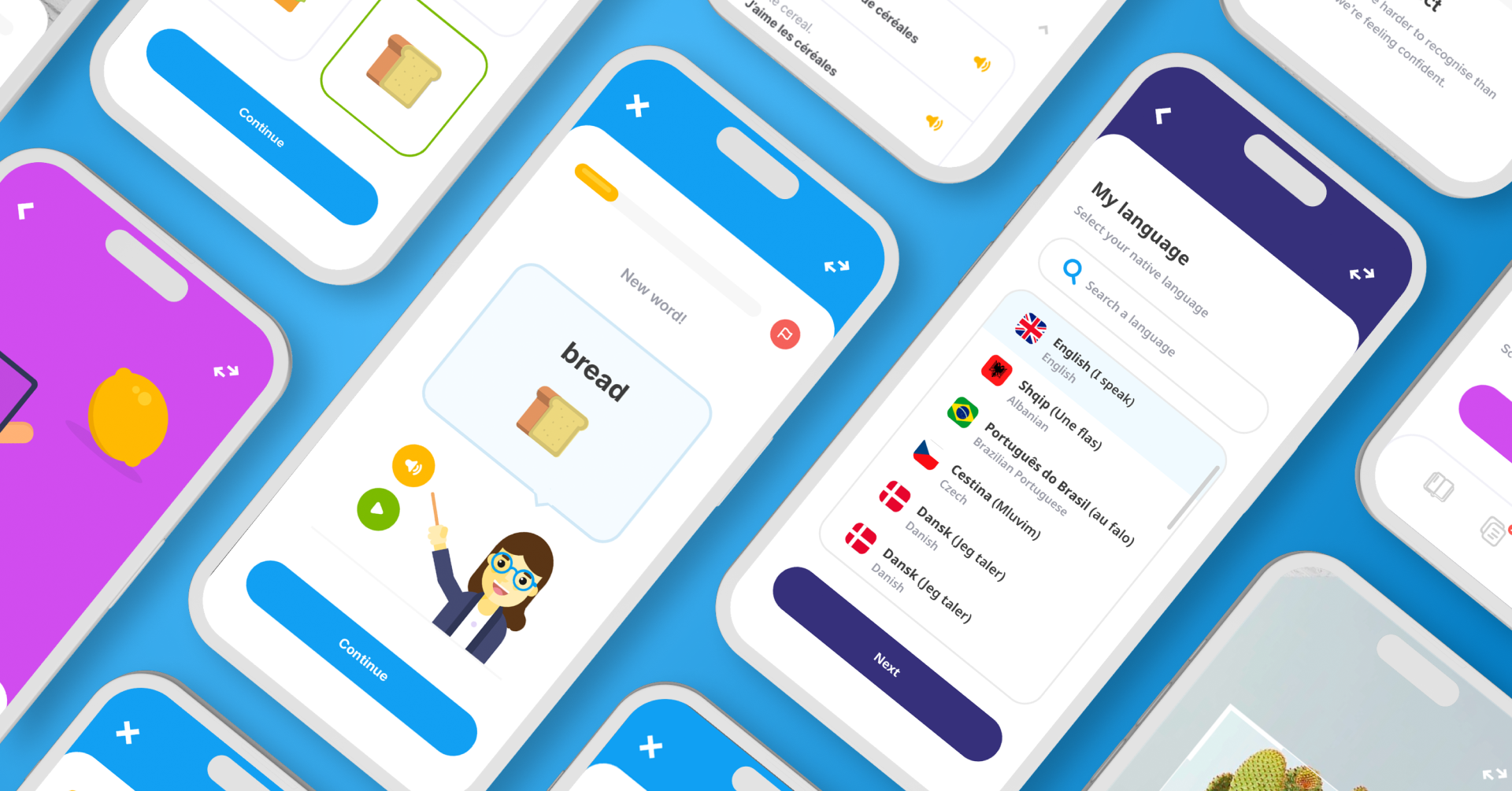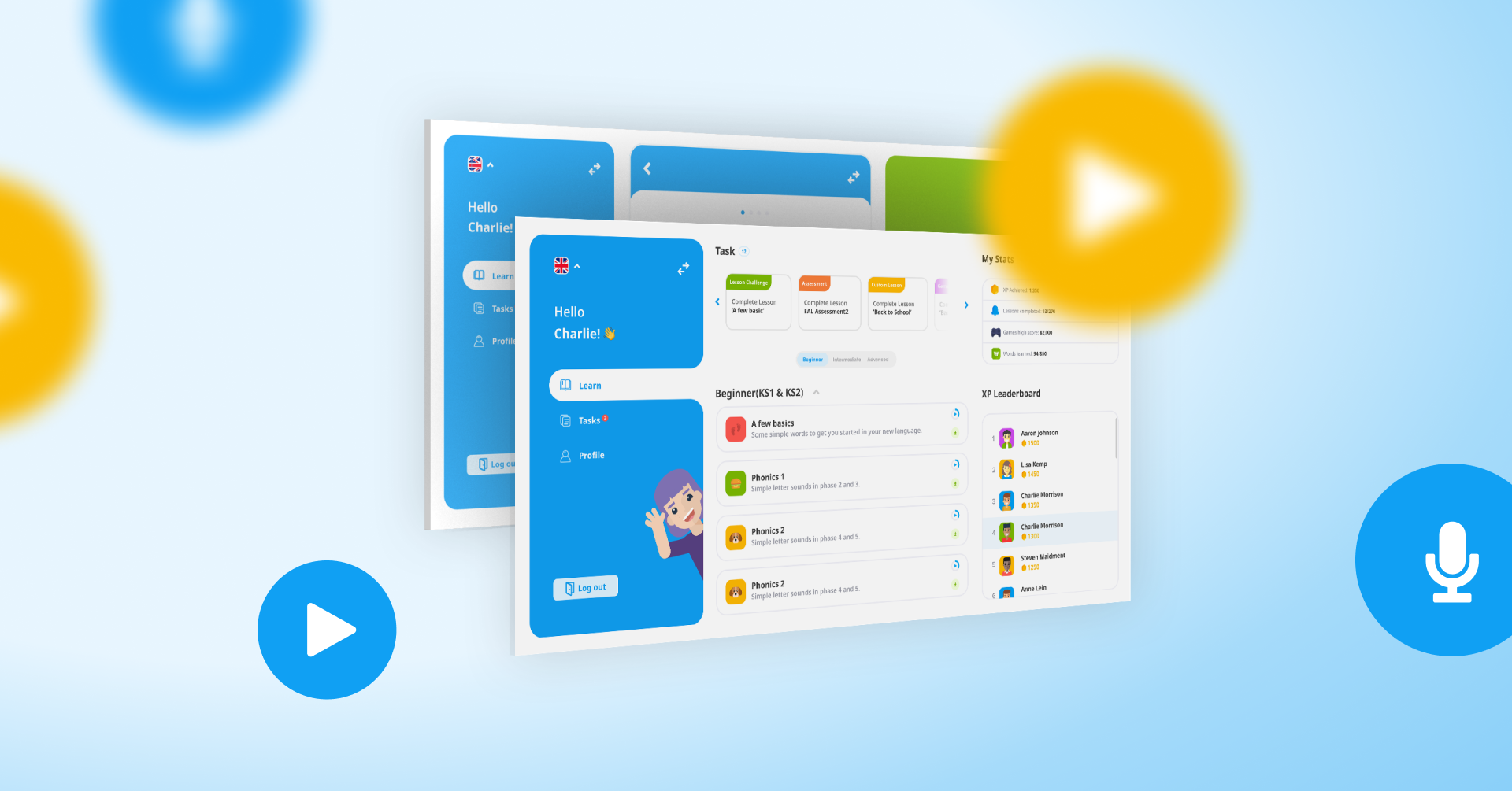

Feel like you’ve spent too many hours toiling away creating unique PowerPoints, handouts and flashcards which your students fly through in half an hour? Do you know the feeling of cutting up hundreds of slips of paper only for half of the pieces to be lost as soon as they hit the desk? Well, there is another way! By getting the most out of the school resources you are using, you can save time, effort and allow for greater depth of learning. With a few tips and tricks up your sleeve, you can exploit activities in a number of ways to avoid endless trips to the photocopier, have fewer flashcard-related paper cuts and maybe even save a few trees.
FlashAcademy® has a wealth of printable resources for MFL and EAL teachers to use alongside the app. Here, we explore six ideas for getting the most out of resources in order to reinforce learning, deepen understanding and expand skills.
Flashcards are for life, not just 10 minutes

A host of tasks can stem from a pack of flashcards. Whatever the content or format of the cards, they should be utilised to their full potential. Print a master set for a class, cut them up, laminate them, then keep them! If there’s no time to make a new set for a class, give pupils a block of note cards and have them come up with as many words they’ve learnt on the topic at hand and get them to create their own.
When planning a lesson, consider the different ways the flashcards can be utilised. Use them to present target language to the class, to drill pronunciation, to revise vocabulary previously studied or practise spelling. Students can use sets to do matching or grouping activities or to test their partner. They can play games like Pictionary or memory, or the cards can form the basis of extended writing activities where pupils use the vocabulary to write their own sentences or texts.
Extend it: Give each student one job flashcard. Ask students to write sentences describing the job. Get pupils to swap their text with a partner who reads the sentences and guesses the job. Swap with other students and repeat.
Pronunciation power

Most activities can be exploited to focus on students’ pronunciation skills. For example, when working on a reading activity with a class, get students to read their answers aloud, make a note of any tricky words and follow up on them after the activity. Write the difficult vocabulary on the board and drill with the class. Introduce minimal pairs to the words to practise differentiating between similar sounds, e.g. hit/heat, or do a class dictation with sentences using the target vocabulary. Reading exercises can also be an opportunity to practise stress patterns in words. Project the text on the board and get pupils to underline stressed words in a sentence or stressed syllables in words.
Try: Alphabet Lowercase Writing Practice
Extend it: Review pronunciation differences between uppercase and lowercase letters. Ask pupils to think of more examples of words beginning with each letter. Use the lesson as a chance to practise pronunciation of pairs of letters that non-native speakers can find tricky, e.g. the differences between ‘r’ and ‘l’, ‘p’ and ‘b’ or ‘f’ and ‘v’.
Vocabulary boost

Any class activity is an opportunity for vocabulary expansion, even if it’s not the main focus of the task at hand. Whether you’re doing grammar, reading or speaking, the teacher can take vocabulary found in the activity to introduce new words to pupils. Activities could include pupils highlighting words that are new to them and working with fellow classmates to try to decipher the meanings or using dictionaries to find the definitions. Teachers can also ask students to write down synonyms for particular words or think of different collocations to use the language in. New words can then form the basis of revision in the next lesson or homework activities.
Try: Odd One Out
Extend it: Review any vocabulary that pupils aren’t sure of. After the activity, ask pupils to work with their partner to come up with more words for each sound. Get feedback from the class and come up with a word bank of vocabulary on the board with each pair writing their own examples. Play Splat after reviewing the vocabulary.
Real life is really memorable

Language learning should be driven by communicative need and this is especially important for EAL pupils, who are surrounded by situations for which they need language in order to survive in their new environment. Try to steer learning as much as possible to real life scenarios. Primarily, this means learning is useful for students, as they will employ the language in everyday contexts, but it also means that pupils are more likely to pay attention to a topic if they have a vested interest in it and so learning will be more memorable. Teachers can bring in realia (real life objects) to the classroom to complement pre-made resources. This provides a link between classroom lessons and the real world, allowing students to apply their learning in authentic contexts.
Don’t be afraid to veer off topic as well. If pupils are curious about a specific piece of vocabulary or are asking how to say a certain word, provide them with the answers. By exploiting a language gap, you can be sure of meeting communicative needs and teaching relevant content.
Try: Asking and Giving Directions
Extend it: Use directions to help new pupils learn their way around school. Give pupils a target, like the cafeteria or reception, and ask them to write directions to it from the classroom. Swap their directions with another group and get the pupils to work out where the destination is. If permitted, get pupils to try out the directions and see where they end up.
Swap the skills
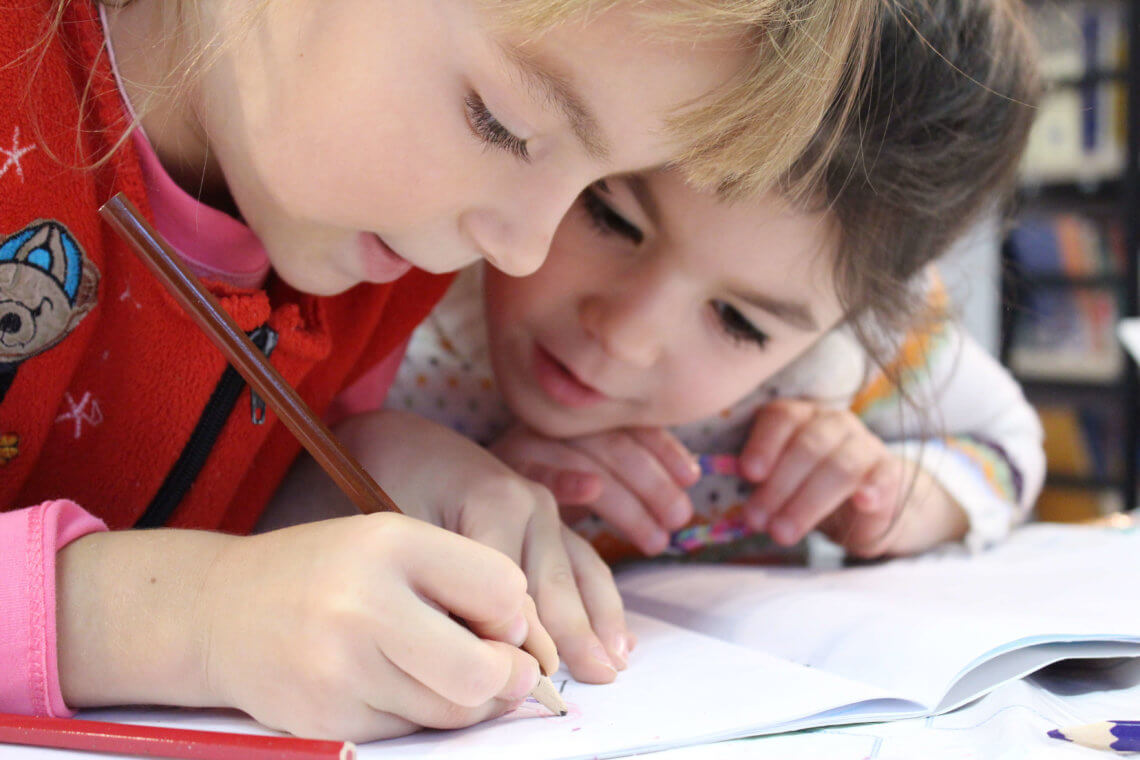
Use one activity to practise a variety of skills. Mix up a reading exercise by changing it to a listening task using dictation. Generate conversations and discussion off the back of vocabulary work for freer practice following controlled activities. Drill pronunciation or deviate off topic to teach new words that come up. Complete reading exercises then have students turn over their sheets and try to recount the answers to their partner verbally. If studying question words, for example, after doing controlled practice with the class, get pupils to write their own questions to ask a partner. Pupils could swap questions with each other and write their answers down and feedback. They could then mingle around the room and ask their questions to other members of the class.
Try: Story Time Kit
Extend it: A nice way of extending writing activities after the writing process has been completed, along with individual feedback from the teacher, is for students to stick up their work around the classroom. The class mingles and reads each other’s work and can give written feedback on sticky notes or feedback verbally to their classmates.
Game on

There are innumerable games that can be played to review or consolidate new vocabulary, grammar or functions. Much fun can be had from practising vocabulary from flashcards or posters with games such as Articulate, charades or even bingo. If students are following FlashAcademy® lessons in class, the group can review the topics by playing the word games in the app and compete against their classmates to get the best score. Lessons can also be complemented by printed resources from the Teacher Dashboard, where there is plenty of inspiration for games, activities and further study.
Try: Animals Vocab Booster Pack
Extend it: After completing the exercises on animals, play a game to review and consolidate the new language. Play ‘backs to the board’, where two students sit in front of the whiteboard facing the class and the teacher writes a word behind them. Their teammates must describe the word to the student (‘It has four legs’, ‘It lives in the jungle’) and the first to guess wins a point for their team.
You can find MFL and EAL resources on a wide variety of topics on the FlashAcademy® website, here, as well as on the Teacher Dashboard. For more lesson-planning inspiration, check out Best Activities for Building Vocabulary or Five Ways Teachers are Using FlashAcademy® in Schools.
